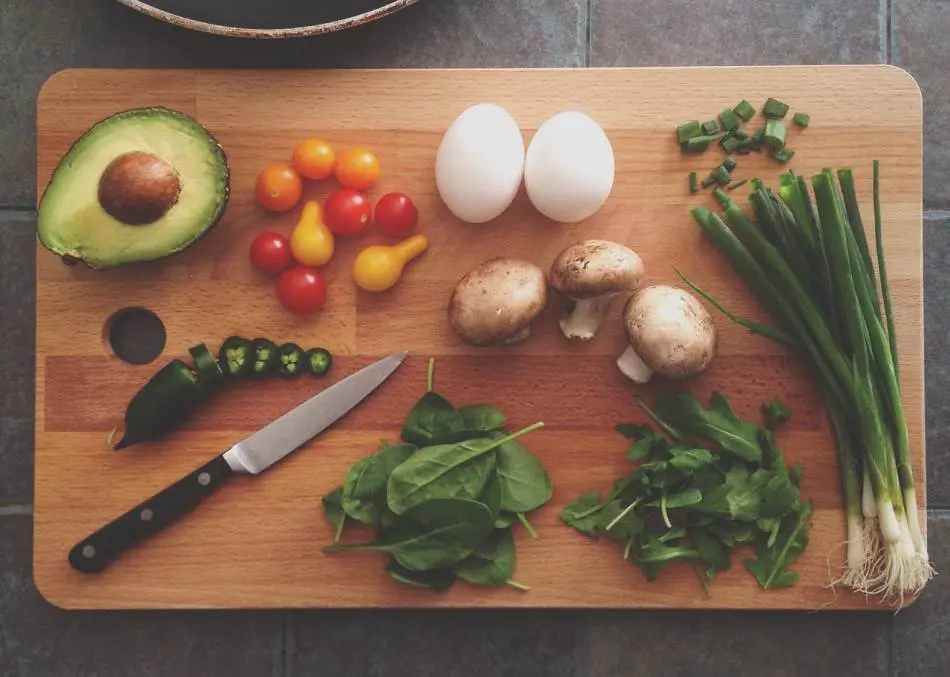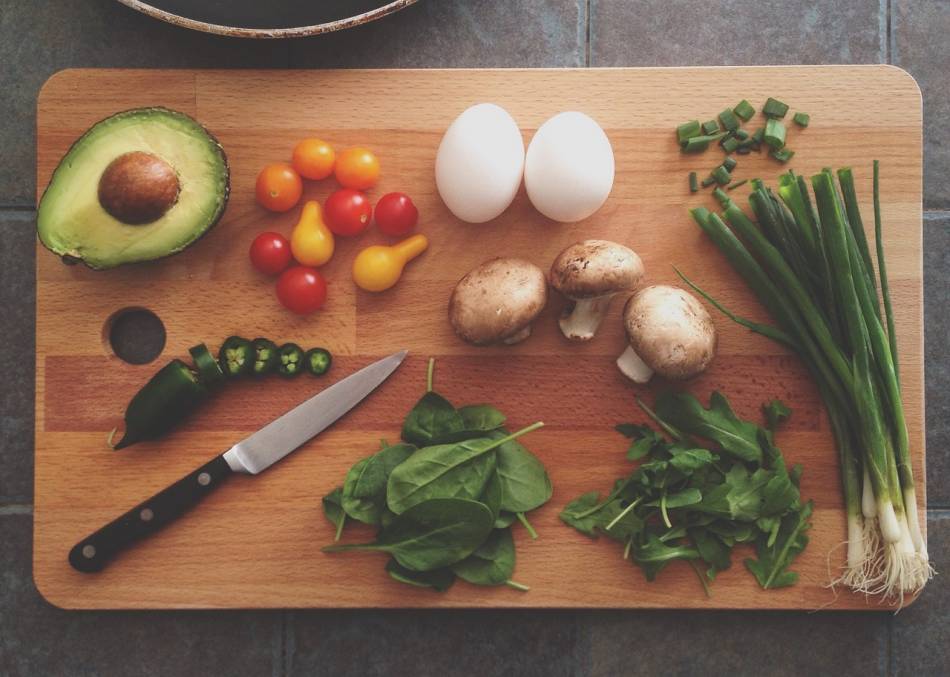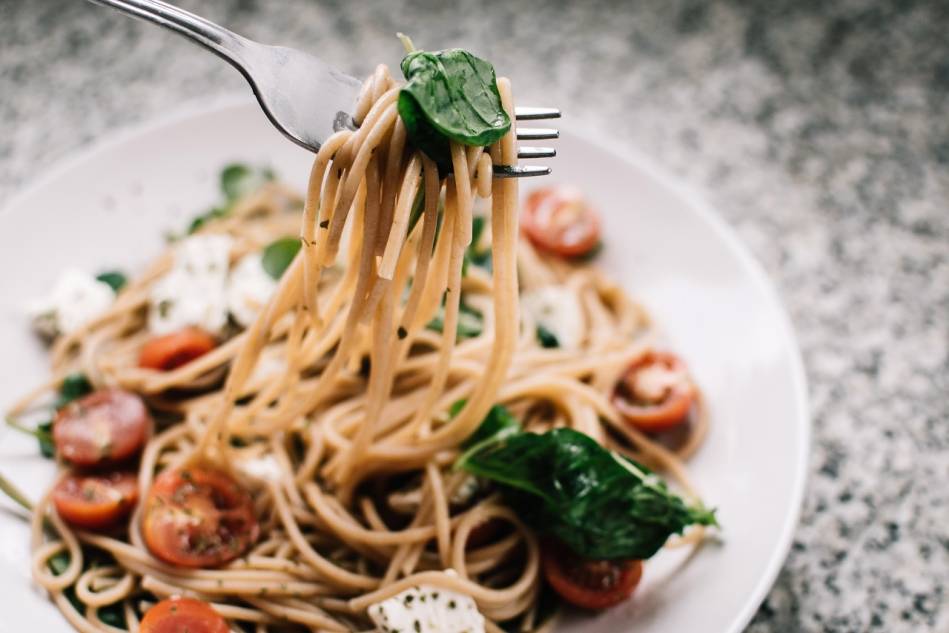
A diet low on carbohydrates

As its name implies, a low-carb diet is one that focuses on decreasing the amount of carbohydrates you consume through your day. This is a diet that the majority of people can do without complications or health risks, except for people taking medicine for blood related deceases such as diabetes or high pressure; and women going through pregnancy or breastfeeding.
A low-carb diet has many health benefits, which are also aligned to your fitness goals. Among others, some of the benefits are losing weight, reducing symptoms of irritable bowel syndrome, reduce sugar cravings and improve mental clarity. Low-carb diets, especially very low-carb diets, may lead to greater short-term weight loss than do low-fat diets.
How does a low carb diet work?
A diet low on carbohydrates has five very easy rules you need to follow, with the simple principle of staying away from food with high carbohydrate content. These rules are:
- Avoid “white” carbohydrates: These include all kinds of processed carbohydrates that are made from refined flour, including pasta, bread and cereals. Consuming these foods might only be good when your fitness goal is to increase strength, for which you’re allowed to consume carbs during the next 30 minutes after you finish your workout. If your goal is weight-loss, the recommendation is to avoid these foods completely during this diet.
- Eat the same few meals over and over again: Although there are plenty of foods you could choose from, it is recommended to make a selection of foods that will not make you gain weight and stick to them through the diet. You can mix them in different variations, but stick to these ingredients and repeat every day.
- Don’t drink calories: Just like most diets, or even if you don’t follow any, the recommendation is always to drink 2 or 3 liters of water through the day. But in this diet specially, keeping out sugary drinks and beverages with no nutritional value is key. Other drinks like unsweetened tea, coffee, or general drinks with no calories are allowed.
- Don’t eat fruits: We’ve all heard that an apple a day keeps the doctor away and that fruits are part of a balanced diet. But, while this is true, for a low-carb diet it is important to stay away from them because fructose, the sugar present in fruits, is equal to lots of carbohydrates and can delay the weight-loss you are expecting.
- Take on day off per week: The key to a successful diet is always consistency, which is very hard to get if you don’t give you and your body a break so the diet does not become overwhelming and boring. Taking one day off is allowed; a day in which you can indulge in all the things you’ve been keeping away. But be careful with the amounts! Being able to eat anything does not mean eating as much of it as you can.
Keeping up with proteins and fats
As you will be consuming fewer carbohydrates, you’ll need to increase the amount of proteins and fats in your diet to make sure you are giving your body enough nutrients and energy to function. However, you must not eat too much of them. Eating a lot of proteins and meat from lean animals, you can end up eating too much of it. When you eat more protein than your body needs, some of its amino acids will be turned into glucose via a process called gluconeogenesis. To avoid this from happening, the recommended daily amount is 0.7–0.9 grams of protein per pound of body weight (1.5–2.0 grams per kg).
When it comes to fats, what tends to happen is the opposite of protein, with people being afraid of them and not eating enough foods with healthy fats. As you don’t eat carbohydrates, you need to eats fats to provide your body with the energy it needs to function. It would be important to choose healthy fats like omega-3 and monounsaturated fats that make up to 70% of your daily calorie intake.
Blood sugar levels
It is not rare to find out that, when you are on a diet low on carbohydrates, some ways of measuring blood sugar will not provide you with “normal” levels. Fasting blood sugar levels may be slightly above normal because your liver is making extra glucose to prepare your body for the day, so keep this in mind but always consult with your doctor the details of your diet and any anomalies you find.

Let’s see the details… What should we eat?
What to eat?
- Meat: Beef, lamb, pork, chicken and others; grass-fed is best.
- Fish: Salmon, trout, haddock and many others; wild-caught fish is best.
- Eggs: Omega-3-enriched or pastured eggs are best.
- Vegetables: Spinach, broccoli, cauliflower, carrots and many others.
- Fruits: Berries like blueberries, raspberries and strawberries are fine in small to moderate amounts, be careful with other fruits.
- Nuts and seeds: Almonds, walnuts, sunflower seeds, etc.
- High-fat dairy: Cheese, butter, heavy cream, yogurt.
- Fats and oils: Coconut oil, butter, lard, olive oil and fish oil.
What to avoid?
- Sugar: Soft drinks, fruit juices, agave, candy, ice cream and many other products that contain added sugar.
- Refined grains: Wheat, rice, barley and rye, as well as bread, cereal and pasta.
- Trans fats: Hydrogenated or partially hydrogenated oils.
- Diet and low-fat products: Many dairy products, cereals or crackers are fat-reduced, but contain added sugar.
- Highly processed foods: If it looks like it was made in a factory, don’t eat it.
- Starchy vegetables: It’s best to limit starchy vegetables in your diet if you’re following a very low-carb diet.
But how does this look in practice? We show you how your meals could look like:
Breakfast
- Leftovers from last night’s dinner
- Coffee with cream
- A can of mackerel and boiled eggs
- Avocado, salmon and sour cream
- Cheese with butter
- Boiled eggs mashed with butter, chopped chives, salt and pepper
- A piece of brie cheese and some ham or salami (or a full breakfast tapas plate)
- High-fat yoghurt with nuts and seeds (and perhaps berries)
Skipping breakfast is also an option. On a low-carb, high-fat diet you’re likely not as hungry and you don’t need to eat as often. Skipping breakfast is perfectly fine if you’re not hungry. Perhaps you’ll only have a cup of coffee.
Lunch and dinner
- Meat, fish or chicken dishes with vegetable and rich full-fat sauce. There are many alternatives to potatoes, such as mashed cauliflower.
- Stews, soups or casseroles with low-carb ingredients.
- You can use most recipes in cookbooks if you avoid the carbohydrate-rich ingredients. It’s often a good idea to add fat (e.g. butter, cream) to the recipe.
- Drink water with your meal or (occasionally) a glass of wine.
What about vegetarians?
Dairy Products and Eggs Are Low in Carbs
Eggs and dairy products that contain no added sugar are perfect for this diet if you are a vegetarian (not vegan), as they low in what we don’t want (carbs), and high in what we want (protein and fats).
- Eggs: Contain only trace amounts of carbs. Choose pastured, omega-3-enriched or free-range eggs if you can.
- Yogurt, Greek yogurt and kefir: Choose unsweetened, full-fat versions. Find ones with live cultures for an additional probiotic benefit.
- Grass-fed butter: Butter from grass-fed cows is healthy, and fine in moderation on a low-carb diet.
- Cheese: Highly nutrient-dense and tasty, and can be used in all sorts of recipes.
These foods are also rich in vitamin B12, which is not found in plant foods. Vegetarians can get all the B12 they need from these foods, while vegans need to supplement.
Low-Carb Friendly Plant Foods (For Both Vegetarians and Vegans)
Vegan can also do low-carb diets are there are lots of ingredients they can use and that are also high in protein and fat.
- Vegetables: Tomatoes, onions, cauliflower, eggplant, bell peppers, broccoli and Brussels sprouts.
- Fruits: Berries like strawberries and blueberries can be eaten on a low-carb diet. If you are more flexible with your diet, some other fruits could be included.
- Fatty fruits: Avocados and olives.
- Nuts and seeds: Nuts and seeds, including almonds, walnuts, macadamia nuts, peanuts and pumpkin seeds.
- Soy: Tofu and tempeh.
- Legumes: Some legumes, including green beans, chickpeas and others.
- Healthy fats: Extra virgin olive oil, avocado oil and coconut oil.
- Chia seeds: Most of the carbs in chia seeds are fiber.
- Dark chocolate: With a high (70-85%+) cocoa content.
Read more about plant-based proteins here.
Can low carbohydrate be dangerous?
Diets low on carbohydrates are only recommended during a short period of time, as it can result in significant weight-loss that would be useful for your summer holiday, a fitness competition or a photo shoot. But it raises concerns when people try to continue it for a longer period of time, from months to years. Complications such as heart functioning problems, sudden death, osteoporosis, kidney damage, increased risk of cancer, impairment of physical activity and lipid abnormalities can all be linked to long-term restriction of carbohydrates in the diet.
Other common issues on low-card diet are leg cramps, constipation, bad breath, reduced physical performance and low tolerance to alcohol.

The perfect 7-days low carb meal plan
Monday
- Breakfast: Omelet with various vegetables, fried in butter or coconut oil.
- Lunch: Grass-fed yogurt with blueberries and a handful of almonds.
- Dinner: Bunless cheeseburger, served with vegetables and salsa sauce.
Tuesday
- Breakfast: Bacon and eggs.
- Lunch: Leftover burgers and veggies from the previous night.
- Dinner: Salmon with butter and vegetables.
Wednesday
- Breakfast: Eggs and vegetables, fried in butter or coconut oil.
- Lunch: Shrimp salad with some olive oil.
- Dinner: Grilled chicken with vegetables.
Thursday
- Breakfast: Omelet with various vegetables, fried in butter or coconut oil.
- Lunch: Smoothie with coconut milk, berries, almonds and protein powder.
- Dinner: Steak and veggies.
Friday
- Breakfast: Bacon and eggs.
- Lunch: Chicken salad with some olive oil.
- Dinner: Pork chops with vegetables.
Saturday
- Breakfast: Omelet with various veggies.
- Lunch: Grass-fed yogurt with berries, coconut flakes and a handful of walnuts.
- Dinner: Meatballs with vegetables.
Sunday
- Breakfast: Bacon and eggs.
- Lunch: Smoothie with coconut milk, a dash of heavy cream, chocolate-flavored protein powder and berries.
- Dinner: Grilled chicken wings with some raw spinach on the side.
In summary, a typical low-carb diet is much lower in carbs and higher in protein than a regular diet. It helps to lose weight given the fact that the body is consuming fewer calories overall and, more specifically, less carbohydrates. It is not recommended to maintain for months or too long periods of time, but consistency is the key to succeed, choosing the ingredients and sticking to them every day. When doing responsible a diet low on carbohydrates is good to lose weight and live with a more balanced nutrition, with additional benefits such as symptoms of irritable bowel syndrome, reduce sugar cravings and improve mental clarity.